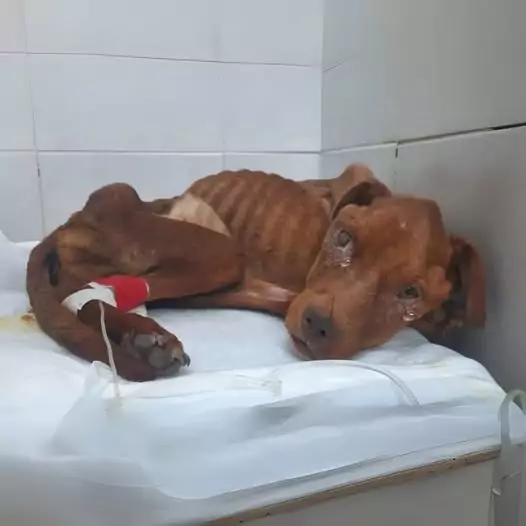
The shelter was a cacophony of barks and howls, a symphony of canine anxieties. But in one of the quieter kennels, a different kind of sound could be heard: soft, muffled sobs. They came from a small, huddled form in the back corner, a dog named Pip.
Pip hadn’t always been a resident of the shelter. He remembered a time, not so long ago, when he had a home, a warm bed, and loving hands that stroked his fur. He remembered the sound of children’s laughter, the smell of home-cooked meals, the comforting presence of his family.
Then, one day, everything changed. He’d been taken on a car ride, a familiar routine that usually led to exciting adventures at the park. But this time, the car stopped at a place he didn’t recognize, a place filled with unfamiliar smells and the anxious barks of other dogs. He’d been led through a set of metal doors, the sound echoing behind him as they slammed shut. He never saw his family again.
Since that day, Pip had only known how to cry. Not loud, frantic barks, but soft, mournful sobs that spoke of a deep, inconsolable grief. He’d curl up in the back of his kennel, his head pressed against the cold concrete, his body trembling with sadness.
He’d stopped eating. The shelter staff tried everything – different kinds of food, tempting treats, even hand-feeding him – but Pip refused. He just wasn’t interested. The joy he once found in a tasty meal had been replaced by a crushing sense of loss.
Days turned into weeks, and Pip’s condition deteriorated. His once-fluffy fur became matted and dull, his ribs protruded sharply beneath his thin coat, and his eyes, once bright and full of life, were now dull and listless. He was becoming just skin and bones, a fragile reminder of the devastating effects of abandonment.
The shelter staff were deeply concerned. They’d seen many abandoned animals come through their doors, but Pip’s case was particularly heartbreaking. His grief was so profound, so all-consuming, that it was literally wasting him away.
They’d sit with him, talking softly, offering gentle strokes, trying to offer some comfort. He’d sometimes lift his head slightly, his eyes filled with a deep sadness, but he’d quickly retreat back into his own world of grief.
One of the volunteers, a kind woman named Sarah, spent extra time with Pip. She’d sit outside his kennel, reading to him in a soothing voice, hoping to reach through the wall of sadness that surrounded him. She’d bring him soft blankets and toys, hoping to spark some flicker of interest.
One day, while Sarah was reading to him, Pip lifted his head and looked at her, his eyes filled with tears. He let out a soft whimper, and then, something unexpected happened. He reached out and gently licked her hand.
It was a small gesture, but it was a sign, a glimmer of hope in the darkness of his grief. Sarah gently opened the kennel door and sat beside him, stroking his fur. He leaned into her touch, his body trembling with sobs.
From that day on, a slow but steady change began to take place. Pip started eating small amounts of food, his appetite gradually returning. He started to interact with the other dogs, his tail giving a tentative wag. He even started to play, a clumsy, hesitant play at first, but gradually becoming more confident and joyful.
Sarah continued to visit him every day, offering him love, support, and the patient understanding he so desperately needed. She knew that the scars of abandonment ran deep, but she was determined to help him heal. Pip’s journey was a long one, but with time, patience, and a lot of love, he slowly began to rediscover the joy of life, leaving behind the heartbreaking image of a dog who had only known how to cry.









